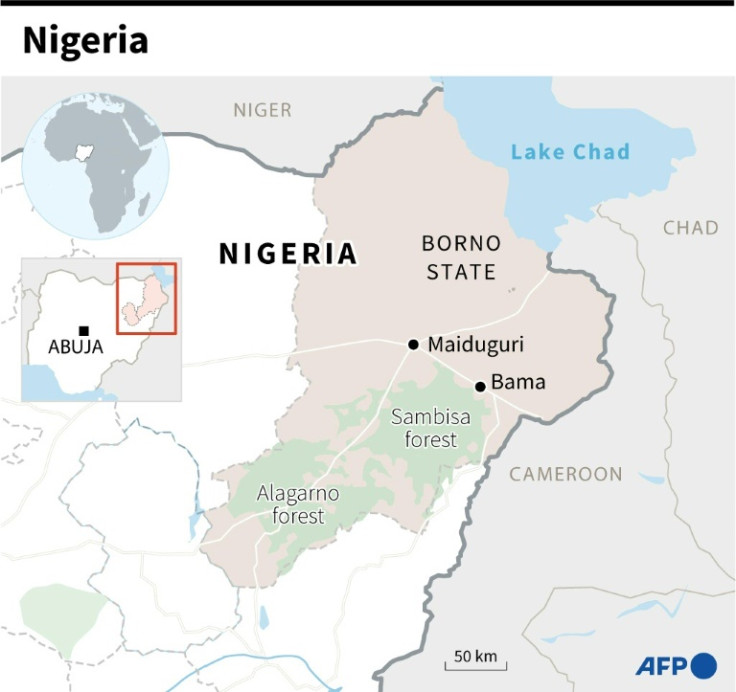
Jihadists have killed at least 40 farmers in Nigeria's northeastern Borno state in the latest violence to hit the conflict-wrought region, a government official said Monday.
Fighters from the Islamic State-aligned Islamic State West Africa Province (ISWAP) late Sunday rounded up scores of farmers in Dumba on the shores of Lake Chad and shot them dead, Usman Tar, Borno state information commissioner said in a statement.
The "initial report indicates about 40 farmers have been killed while the whereabouts of many who escaped the attack are being traced for reunion with their families," Tar said.
The state government has ordered troops fighting jihadists in the region "to track and obliterate the insurgent elements" operating around Dumba and their enclaves in the wider Lake Chad area, Tar said.
The farmers "strayed off" the safe limit set by troops for farming and fishing in the area that is a sanctuary for militants from ISWAP and its Boko Haram rival and is dotted with landmines and "prone to nocturnal attacks", the commissioner said.
Lake Chad, which straddles Nigeria, Niger, Cameroon and Chad, serves as a hideout for Boko Haram and ISWAP who use it as a base from which to launch attacks into the countries.
According to a Nigerian intelligence report seen by AFP, "casualties could be over 100 persons killed in the attack" which it blamed on ISWAP fighters.
The farmers came from the region of Gwoza on the border with Cameroon to cultivate cowpea and onions on the shores of the freshwater lake, according to an anti-jihadist militia.
"The farmers had a deal with Boko Haram to farm in the Kwatar Yobe and Tudun Kanta near Dumba on the shores of the lake," Babakura Kolo, a militia leader told AFP.
"What they didn't know is that Lake Chad is demarcated between ISWAP and Boko Haram. While Boko Haram controls the islands in the lake, ISWAP controls the areas on the shores," Kolo said.
ISWAP attacked the farmers as punishment for encroaching on its territory without permission and payment of levies it usually imposes on farmers, fishermen and herders who want to operate in the area under its control, he added.
ISWAP and Boko Haram have been locked in deadly infighting for territorial control since their split in 2006 over ideological differences, which led to the killing of Boko Haram leader Abubakar Shekau during clashes in May 2021.
ISWAP dislodged Boko Haram from its traditional Sambisa Forest stronghold, forcing the rival militants into islands on the Niger side of Lake Chad.
"ISWAP fighters were enraged on discovering the farmers had paid money to Boko Haram to farm in the area and decided to punish them by gathering them and opening fire on them," Kolo said.
He dismissed the death toll given by Tar as a "gross understatement", saying the casualties "far exceed that number."
"We are talking of more than 100 killed in the attack," he said.
Sallau Arzika, a fisherman in Baga who agreed with Kolo's casualty toll, said the farmers took an unnecessary risk by striking a deal with jihadists.
ISWAP and Boko Haram have increasingly targeted farmers, fishermen, loggers, herders and metal scrap collectors, accusing them of spying and passing information to the military and the local militia fighting them.
Since 2009, more than 40,000 people have been killed and around two million displaced from their homes in Nigeria's northeast by the jihadist conflict.







